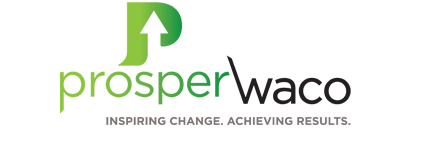
The Episcopal Health Foundation is joining Prosper Waco by helping develop and execute a plan of community engagement for the project. The goal is to help Prosper Waco make a measureable change in residents’ health, education and financial security by including the voices of the people the group aims to help.
“There’s always a need to bring in the community at the neighborhood level,” said Troy Bush, research associate and community engagement expert at EHF. “Research shows that when you involve the people who are affected by an issue like lack of access to healthcare, the success rate for the resulting interventions will be higher.”
Prosper Waco is working to consolidate and strengthen the efforts of existing non-profit groups to improve the lives of all people in Greater Waco. The group is using a collective impact model: bringing together various leaders and organizations to reach a shared, common goal in an organized and strategic way.
“We were intrigued by EHF’s community engagement and the stories Troy and the team told,“ said Matthew Polk, executive director of Prosper Waco. “We know we’re going to learn practical ways to start some ground-level conversations about health. It’s absolutely necessary for those living the experience of low health outcomes to be involved.”
Prosper Waco began in 2014 after years of work of various groups across Waco. Leaders decided they could be much more effective if they worked together with a common agenda to deal with important community issues like health, education and financial security.
“We cannot separate any one of these areas to be effective in any of them,” said Waco mayor Malcolm Duncan, Jr., at the Prosper Waco kickoff event. “Study hall is over. These are not issues we need to debate. They are structural problems we need to fix together. There’s a sense of urgency about our mission on this work.”
EHF will help Prosper Waco establish a Council of Community Engagement that will work to inform communities about the Prosper Waco project and provide initial feedback on neighborhood concerns. Then, residents themselves will help guide priorities of proposed solutions and help “road test” interventions before they’re implemented community-wide.
“We have to ask the folks who have the need,” Polk said. “We have to remove the roadblocks to talk to the people to really understand what’s needed to maximize his or her potential.”
Being part of a project like Prosper Waco fits the goals and strategies EHF believes are needed to truly transform community health.
“We believe our goal of connecting communities is what’s really needed at the ground level to build healthy communities,” said Elena Marks, EHF’s president and CEO. “Connection builds trust and allows people without power a choice in identifying and solving their own health problems. This kind of collective impact initiative works to support that goal because it’s bringing together a variety of sectors to impact health.”
- Learn more about Prosper Waco: www.prosperwaco.org
- Learn more about EHF’s Vision, Goals and Strategies